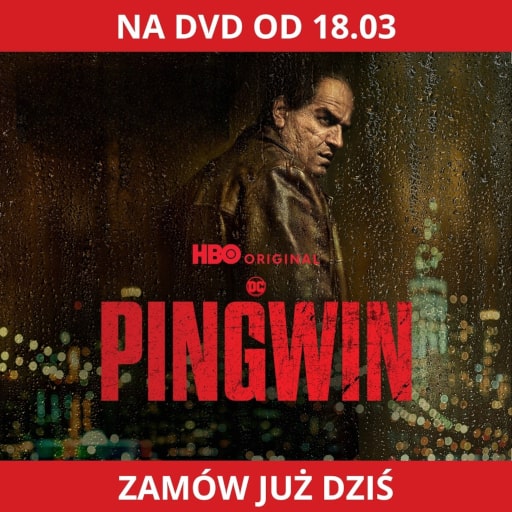Half a century later, poetry was written virtually without a budget, fueled above all by the self-denial and passion of its authors. Thanks to their commitment and hard work, it was possible to create a film that was well received by fans and critics. John contributed his three cents to this project, who made this work sound. And that's how it sounds!
Antares: What is it like to be a sound engineer? Well?
Jan Dzyr : You know, in my opinion it is not good or bad. If I were to say what I value the most in life, I would say people. People who gave me a helping hand when I was struggling when I was alone.
And how are you? Privately, I have heard from you that you are finishing the stage of education, what are your further plans in this matter? And what are you doing in the professional zone?
J.Dz. : As they say in the West, living the dream . I’m not complaining. The pandemic does not bother me too much. And yes, I finished the stage of education called higher education and from further plans it means that I finished all education and I still do not plan to continue it too much. At least I don’t know anything about it. In the professional zone, I continue my films. Currently, together with Bartek Jakubiak, we are working on his film The Mill , which was originally supposed to be my graduation film, but remained his diploma, and it will probably be my next full-length film in the collection of the sound director and set worker
A: Do you work more often with movies or other cultural texts? Which medium is better for you?
J. Dz. : Most of the time I work on movies, although nowadays I’m trying to get into gamedev with sound design a bit . Well, so far the fruits of this entry are a few game jam games and one production where I did dubbing. Generally speaking, I am willing to stay somewhere in the middle, because I am most interested in creating worlds, and here and here there is a bit of it and you can play with it.
A: How did your adventure with sound and its directing start? What was / is your inspiration?
J. Dz.: My adventure began with the fact that I wanted to become a cinematographer. After doing two music videos as a production assistant, I got into it a bit, to do something behind the camera later to illuminate the set. Until I ended up in film school for the open day and finally, out of boredom, I went to the sound studio. It turned out to be cooler there, and I stayed there. Besides, the whole family was connected with it, so somehow by accident I ended up where everyone else was. As for inspiration, I didn’t get inspired too much in this direction, it was more of a coincidence. Somehow I found myself best in what I do. And they are different sound engineers on a daily basis. I like reading various interviews or some summaries of different projects or other ways to share knowledge or experience. And of the people
A: How important do you think sound plays in the media? Can it be or not of a given production?
J. Dz. : Hmm, you could quote a classic George Lucas quote: sound is half the movie . Well, it is a bit like that. It is true that he did Star Wars and his films drew heavily on sound. However, a Star Wars game without the iconic lightsaber sounds would not be the same. But yes, the sound may or may not be a production … Gee, I have a hard time here for examples, but generally good sound can save a poor script, and poor sound can beat even the best.
A: If so, how can this be achieved? What needs to be done for the sound to fulfill its role well in the piece?
J. Dz. : Gee, if I knew how to achieve it, I would probably be a millionaire by now. But I’m not ( laughs ). It is definitely useful to have a lot of time to spend on a given song. Experience. Consultation with other creators to identify what we have overlooked, what can be done better. But when I say, if I knew, I wouldn’t be here.
A: Therefore, are predispositions necessary for this job? What? Is hard work enough to work with sound? What is required of a good sound engineer?
J. Dz: Generally speaking, hard work is enough. Most of the skills can be acquired and learned. Working with sound is not immediately an eminently artistic person. There are a lot of sound professions where it is important to be a strictly technical person, so it generally depends on our choice. You can learn the technical aspects with hard work, and many people have started and even finished this way. But are there any necessary predispositions? I would say yes. You have to be able to listen. You must have a certain auditory and sound imagination. You have to be able to imagine what sounds should be heard in a given situation. When working on a film, most often, after editing, the sound engineer only receives dialogues with no effects, no background, no atmospheres, no birds singing in the forest. You have to fill it in somehow. You have to find an idea for this movie. Some people can find it, some can’t. But do they need to find? Not necessarily, because they may just be assistants who will follow the guidelines. What is required of a good sound engineer? I do not know (laugh). That he does his job well, that he works with good results from the beginning to the end.
A: How do you remember working on Half a century of poetry later ? Are you satisfied with the results of your work on this film?
J.Dz : Half a century of poetry laterI remember great! Working on the film set was a great pleasure for me. It was the first film on this scale that I worked on, and they were fantastic people who were a pure pleasure to create. Even despite the many hours of overtime, we had a lot of fun day after day and the results were good. I am satisfied with my work results. It is true that when it comes to post-production, I actually had a month and a week for it due to the last postponement of the release date. A month is a very small amount of time to post a full-length production, especially if you don’t have the finances and you have to spend all this time on one project. I was lucky that I was a student then and that I could devote all my time, and I did not have any additional classes or assignments at that time. Some of my team unfortunately had to spend a little less time due to work and other activities. So in effect, well, the movie went well. We are done with the work and I doubt it could have been done better in such a short time.
A: What was the most difficult challenge in your career so far and how did you deal with it?
J.Dz. : The most difficult challenge in my career still remains Half a century of poetry. I doubt that anything can beat this film any time soon. However, most of the songs are better organized in terms of production, because they simply have money in the world. Well, ( laughs ) how did I deal with it? What was the biggest challenge in this movie? Organizing the entire post-production sound team and making sure that everyone works for this time and produces results. How I dealt with it, I don’t know. I wrote a lot to them, I marked out a lot of points on the board, I planned well what I needed and what I can give up in case of problems. And the movie came out as a result, so I guess I coped with it.
A: What is your normal working day like?
J. Dz: I start a normal working day with coffee. Preferably one from a coffee machine, a cappuccino with milk, and then the stairs begin, because I don’t work under the same conditions every time. When I’m working on a movie set, I usually get up an hour before I leave, make coffee, make a morning toilet, eat breakfast that is the size of a dinner, because I’m going to be sitting on a movie set for twelve hours. Normal lunchtime is usually too late and too early to have energy for the day. And when I work at home and have something to edit or record, I usually start it with coffee, then I sit at the computer for a long time, do various things, browse the Internet, check e-mail, write with friends, and at the end of the day, in the evening , I remember that it’s probably time to work and this is how my working day begins (laugh ).
A: How do you find yourself in the sound engineering market? Do young people have a chance to stand out and make a career? If so, where do you see the greatest opportunities, what is the segment?
J. Dz : Well, I find myself at the very beginning of this trip. The last few years have been my education, something is already in my portfolio, something is getting ready for the next one. Slowly to the goal. Do young people have a chance to stand out? Well, ask me how to stand out and I’ll make a career, but I think so. It is true that in Poland, when it comes to film, young people are so much more difficult because the environment is somewhat hermetic and you have to be able to squeeze into the ranks, find your place. Many do, many are able and successful. On the other hand, we have other markets, such as the gaming market, and in Poland, games have been developing a lot in recent years. We are talking not only about CD-Projekt or other classic giants, but also about the indie marketwhich is also developing. New studios are being created, many people find work in sound design in games. I think this is a pretty decent market when it comes to getting started.
A: Can indie game sound production be an entry into the world of sound engineering for larger productions? Is it such a gateway for talented young artists?
J. Dz : Can indie games be such a gate? Hard to say. It is difficult to enter the gamedev market in Poland . There is some talk about the fact that there is not that much room for juniors, or that there are not too many internships. Juniors are here, they have three years of work experience, it may not be the best view of the industry, but it is possible. People can squeeze in. Somehow find a common language with studies there, make contacts in general. They also collect game-related experiences, game jams , some small, own projects. They are able to donate their portfolio to some small indie studioor to the big one as assistants, where they can only learn something from someone, and not be thrown into the deep water, which could happen in indie studies . They could be the only sound designers there . Only when entering a larger production one should consider what we mean by larger production. Are we talking about a sudden move to a large game studio? Probably yes, although indie games are also quite big. Will young people have more fun doing Cyberpunk ? It’s possible, and it’s possible that they’ll do much less with it than in a smaller studio. Will indie games be such an entrance? I think not. I think every studio is an opportunity. Each studio is large, small, indie whether AAA is capable of being that starting point.
A: What are your dreams and ambitions, what would you like to achieve on your professional career? What are you going to focus on right now?
J.Dz : Currently I’m focusing on development, I’m trying to develop as much as possible towards gamedev . Generally, in the background I have my own studio, independence. To be able to create everything here regardless of the time of day or night and not have any limitations in what I would like to do. And still, I see great potential in the development of the indie games market , where independent sound designers are replaced by outsourcingsound to separate sound studios, with the resources, tools, and people to do it. It is slowly entering Poland, I hope that I will be able to seize a small part of this market for myself, and if not, I will gladly join others. And in a movie career, well, as long as I have a lot of nice projects for the rest of my life! ( laughs )
A: And this is what I wish you! Thank you very much for the interview.



